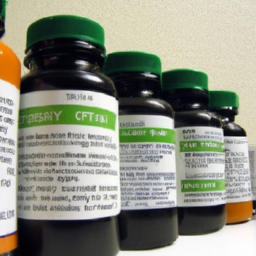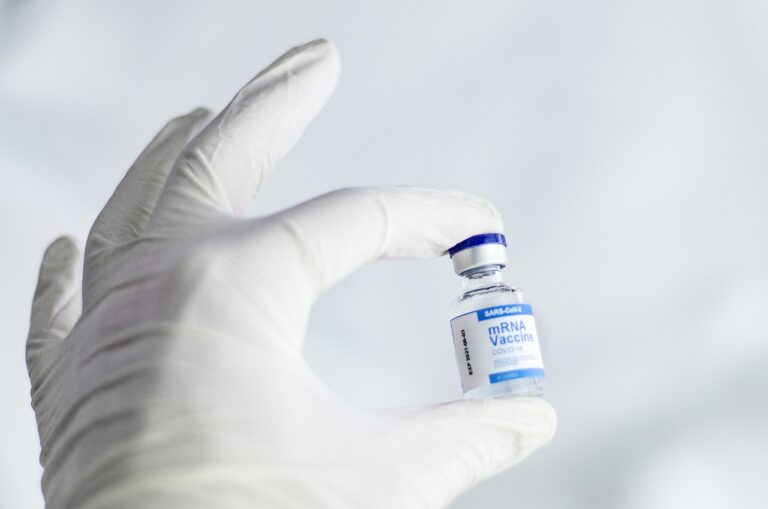Can Herbal Supplements Be Dangerous?
Can herbal supplements be dangerous? Learn about the potential risks, side effects, and interactions with conventional medications in this informative post. Stay informed to make safe and responsible choices.
Hey there! Have you ever wondered if herbal supplements can be dangerous? Well, you’re in luck because we’re here to explore that very question. It’s always good to be informed about the potential risks and benefits before adding any kind of supplement to your routine. So, let’s dive in and find out if herbal supplements pose any dangers and what you should keep in mind.
If you’re curious to know more about herbal supplements and their safety, then this article is perfect for you. We’ll be discussing the pros and cons, giving you general information, and, most importantly, sharing some safe practices to follow. Being knowledgeable about herbal supplements can help you make informed decisions and ensure you’re taking them responsibly. So, stay tuned to discover more about the world of herbal and health supplements! As more and more people turn to natural remedies and seek alternative options for their health, herbal supplements have become increasingly popular. These supplements offer a range of benefits, from promoting overall wellness to addressing specific health concerns. However, it is important to remember that just because something is natural, it does not mean it is entirely safe. In fact, herbal supplements can pose potential risks and dangers if not used correctly. In this article, we will explore the potential dangers of herbal supplements, the importance of research and knowledge, and how to ensure product safety and quality.
Understanding Herbal Supplements
Before delving into the potential risks and dangers, it is important to have a comprehensive understanding of herbal supplements. Herbal supplements are derived from plants and typically come in the form of capsules, tablets, powders, or teas. These supplements are believed to have medicinal properties and are often used to support overall health and well-being, as well as to address specific health concerns such as immune function, digestion, or sleep.
Herbal supplements can be a valuable addition to your healthcare routine when used correctly. However, it is crucial to remember that they are not regulated by the same standards as pharmaceutical drugs. This lack of regulation means that the safety, purity, and effectiveness of herbal supplements can vary greatly.
Potential Risks and Dangers
One of the most significant risks associated with herbal supplements is the potential for interactions with conventional medications. Many herbal supplements contain active ingredients that can interfere with the way medications are metabolized in the body. This can lead to decreased effectiveness of the medication or, in some cases, increased toxicity.
It is important to consult with healthcare professionals, such as doctors or pharmacists, before starting any herbal supplements, especially if you are taking any prescription or over-the-counter medications. They can provide valuable insights into potential interactions and help you make informed decisions about which supplements are safe for you.
In addition to interactions with medications, herbal supplements can also have their own set of side effects. Some supplements may cause digestive issues, such as nausea, diarrhea, or upset stomach. Others may have more serious side effects, such as liver damage or allergic reactions. It is essential to be aware of the potential side effects of any herbal supplements you are considering and to discontinue use if you experience any adverse reactions.
The Importance of Research and Knowledge
When it comes to herbal supplements, the importance of research and knowledge cannot be overstated. It is crucial to thoroughly investigate the supplements you are interested in taking, including understanding the potential risks and benefits associated with them. This research can involve reading scientific studies, consulting reputable sources, and seeking guidance from healthcare professionals.
Furthermore, it is essential to be critical of the information you find and to evaluate the credibility of the sources. Misinformation and false claims are prevalent in the supplement industry, and it is important to rely on evidence-based information rather than marketing tactics.
Interactions with Conventional Medications
As mentioned earlier, herbal supplements can interact with conventional medications, potentially leading to unforeseen consequences. It is vital to be aware of these potential interactions and to take the necessary precautions to ensure your safety.
Before starting any herbal supplement regimen, it is crucial to consult with your healthcare professional. They can provide guidance on any potential interactions between the supplements and your current medications. Additionally, they may advise adjusting the dosage or timing of your medications to minimize the risk of interactions.
Potential Interactions and Side Effects
The potential interactions between herbal supplements and conventional medications can vary widely. Some supplements may enhance the effects of certain medications, leading to an increased risk of side effects. Others may inhibit the effectiveness of medications, rendering them less potent.
For example, St. John’s Wort, a popular herbal supplement used for depression, can interact with numerous medications, including antidepressants, birth control pills, and blood thinners. This interaction can decrease the effectiveness of these medications or increase the risk of side effects.
It is important to note that interactions can vary from person to person and depend on factors such as dosage, duration of use, and individual health conditions. Therefore, it is crucial to consult with a healthcare professional who has access to your complete medical history and can provide personalized advice.
Consulting with Healthcare Professionals
To ensure your safety when using herbal supplements, it is advisable to involve healthcare professionals in your decision-making process. They can provide guidance on which supplements are safe for you based on your individual health needs and any medications you are currently taking.
When discussing herbal supplements with your healthcare professional, it is essential to provide them with accurate and complete information. This includes disclosing any medications, vitamins, or other supplements you are currently taking, as well as any known allergies or sensitivities.
Risk Factors to Consider
While herbal supplements can be generally safe for most individuals when used correctly, certain risk factors should be taken into consideration. These risk factors may increase the potential dangers associated with herbal supplements and require extra caution and attention.
Pregnant and breastfeeding individuals should be particularly cautious when considering herbal supplements. Some supplements can affect hormonal balance or have unknown effects on fetal development, making them potentially harmful during pregnancy. It is crucial to consult with a healthcare professional before starting any new supplement regimen during this time.
Individuals with pre-existing health conditions, such as liver or kidney disease, should also exercise caution when using herbal supplements. Certain supplements, such as those containing high doses of certain herbs or ingredients, may put additional strain on these organs and exacerbate existing conditions. Again, consulting with a healthcare professional is essential to determine which supplements are safe for you.
Quality and Regulation of Herbal Supplements
One of the challenges when it comes to herbal supplements is the lack of regulation and standardized quality control. Unlike pharmaceutical drugs, herbal supplements are not subject to the same rigorous testing and oversight by regulatory authorities.
Ensuring the safety and efficacy of herbal supplements can be difficult, but there are steps you can take to minimize the risks. One important factor to consider is product safety and quality. Look for supplements that have undergone third-party testing for purity, potency, and quality. Reputable manufacturers will often provide these test results upon request, which can give you peace of mind regarding the product’s safety.
Furthermore, the effectiveness and standardization of herbal supplements can vary greatly. It is important to choose supplements that have been tested and standardized to contain consistent levels of active ingredients. Standardization ensures that you are receiving a reliable and predictable amount of the desired compound in each dose.
Lastly, it is important to identify reputable manufacturers when purchasing herbal supplements. Look for companies that have a good reputation, have been in operation for a significant amount of time, and follow established industry standards and guidelines. This can help ensure that you are purchasing supplements from a reliable source.
Specific Herbal Supplements to Watch Out For
While many herbal supplements can be used safely and effectively, there are some specific supplements that tend to pose more risks and potential dangers. It is important to be aware of these supplements and their reported side effects and potential health risks before considering their use.
One such example is ephedra, which was commonly used for weight loss and athletic performance enhancement. Ephedra has been associated with serious cardiovascular side effects, including high blood pressure, irregular heartbeat, and even heart attacks. Due to these risks, the United States Food and Drug Administration (FDA) banned the sale of dietary supplements containing ephedra in 2004.
Another example is kava, a herb traditionally used for anxiety and stress relief. However, kava has been linked to liver damage in some individuals. The FDA issued warnings about the potential for kava to cause liver injury in 2002.
These are just a few examples of specific herbal supplements that have raised concerns due to reported side effects or potential health risks. It is important to research any supplements you are considering and to be aware of the potential risks associated with them.
Possible Allergic Reactions and Adverse Effects
Just like with any substance, herbal supplements can trigger allergic reactions or adverse effects in some individuals. It is essential to be mindful of these possibilities and to take necessary precautions.
Identifying allergies and sensitivities is crucial when considering herbal supplements. Some individuals may be allergic to specific herbs or ingredients commonly found in supplements. By reviewing the supplement’s ingredient list and consulting with healthcare professionals, you can identify potential allergens and avoid them.
Signs of adverse reactions can vary depending on the individual and the nature of the supplement. Common symptoms may include rash, itching, swelling, difficulty breathing, or gastrointestinal distress. If you experience any of these symptoms after starting a new supplement, discontinue use and seek medical attention immediately.
Taking Precautions
To minimize the risk of allergic reactions or adverse effects, it is advisable to take certain precautions when using herbal supplements. Start by introducing supplements gradually and monitoring your body’s response. This can help you identify any potential adverse effects before they become severe.
Additionally, it is always a good idea to keep track of the supplements you are taking and any potential side effects experienced. This information can be useful when discussing your health with healthcare professionals or determining the cause of any unexpected symptoms.
Lastly, if you have a known allergy or sensitivity to a particular plant or herb, it is best to avoid supplements that contain those ingredients altogether. There are often alternative supplements available that can provide similar benefits without the risk of triggering an allergic reaction.
Long-Term Effects and Unknown Risks
While some herbal supplements have a long history of use and extensive scientific research supporting their safety and efficacy, the same cannot be said for all supplements. It is important to recognize that there may be long-term effects or unknown risks associated with certain herbal supplements.
Some supplements may accumulate in the body over time, potentially leading to unintended consequences. For example, high doses of certain herbs, such as comfrey or pennyroyal, have been associated with liver damage or even liver failure.
Furthermore, the long-term effects of many herbal supplements are still unknown due to limited research. There is a need for extensive, well-designed studies to evaluate the safety and effectiveness of various herbal supplements. Until then, it’s important to approach these supplements with caution and consider the potential risks before incorporating them into your healthcare routine.
Misinformation and False Claims
Misleading marketing and false claims are pervasive in the supplement industry. It is important to approach information about herbal supplements critically and to evaluate the credibility of the sources.
Many supplements are marketed as “miracle cures” or as having extraordinary benefits without sufficient evidence to support these claims. It is important to rely on reputable sources, such as scientific studies or trusted healthcare professionals, to obtain accurate information about herbal supplements.
Furthermore, it is crucial to remember that individual experiences and testimonials are not necessarily indicative of the overall effectiveness or safety of a supplement. What may work well for one person may not have the same impact on another. Keeping this in mind can help you avoid falling for exaggerated or misleading claims.
Understanding Misleading Marketing
Misleading marketing tactics can make it challenging to navigate the supplement market. Some companies may use language that implies that their supplements are FDA-approved or scientifically proven, without providing the necessary evidence to support these claims.
It is crucial to be aware that the FDA does not approve dietary supplements before they are marketed. Instead, the responsibility lies with the manufacturer to ensure the safety and quality of their products. Companies can make claims about the health benefits of their supplements as long as they do not make specific disease or drug claims that would require FDA approval.
To avoid falling victim to misleading marketing, it is important to read supplement labels and do your research. Look for supplements that provide transparent information about their ingredients, manufacturing processes, and any third-party testing they have undergone.
Safeguarding Children and Vulnerable Populations
Special considerations need to be taken into account when it comes to children and vulnerable populations, such as the elderly or individuals with compromised immune systems. The use of herbal supplements in these groups should be approached with caution to ensure their safety and well-being.
When it comes to children, it is essential to consult with healthcare professionals before considering any herbal supplements. Children may have different nutritional needs or sensitivities compared to adults, and certain supplements may have unforeseen effects on their development or overall health.
Vulnerable populations, such as the elderly or individuals with compromised immune systems, may be more susceptible to the potential risks of herbal supplements. These individuals may have pre-existing health conditions or be taking medications that can interact with supplements, making it even more important to involve healthcare professionals in the decision-making process.
Natural Does Not Always Mean Safe
One common misconception about herbal supplements is that because they are natural, they are inherently safe. However, this is not always the case. Many plants contain compounds that can be harmful if consumed in excessive amounts or by individuals with specific health conditions.
For example, certain herbal supplements, such as Aconite or Belladonna, contain toxic substances that can have serious health consequences when consumed in large amounts. Other supplements may be contaminated with impurities or heavy metals, posing an additional health risk.
It is important to approach herbal supplements with the same caution and attention to safety that you would with any other medication or substance. Conduct thorough research, consult with healthcare professionals, and follow recommended dosage guidelines to minimize the potential dangers associated with these supplements.
Potential Toxic Substances in Herbal Supplements
Herbal supplements can sometimes contain toxic substances that pose health risks to consumers. This can be due to a variety of factors, including contamination, poor manufacturing practices, or the inclusion of the wrong plant parts.
Heavy metals, such as lead, mercury, and arsenic, can be present in some herbal supplements due to contamination from the soil or the manufacturing process. These metals can accumulate in the body over time and lead to various health problems, including organ damage.
To mitigate the risk of ingesting toxic substances, it is important to choose reputable manufacturers that adhere to strict quality control measures. Look for supplements that have undergone third-party testing for contaminants and impurities.
Contaminants and Impurities
Contaminants and impurities in herbal supplements can arise from various sources, including the growing conditions of the plants, the manufacturing process, or improper storage and handling. These contaminants can be harmful to your health and increase the potential dangers of using herbal supplements.
One common source of contaminants is pesticides or herbicides used during the cultivation of the plants. Residues of these chemicals can end up in the final product and may pose health risks when consumed.
To ensure the safety of herbal supplements, it is important to choose products from manufacturers who prioritize quality and have rigorous testing in place to detect and remove contaminants. Look for labels indicating that the product has been tested for purity and meets established safety standards.
Herbal Supplements and Liver Health
The liver plays a crucial role in metabolizing drugs and toxins in the body. Certain herbal supplements have been associated with liver damage or other adverse effects on liver health.
One example is black cohosh, which is commonly used to alleviate menopausal symptoms. While rare, there have been reports of liver damage associated with the use of black cohosh. It is important to be mindful of this potential risk and to discontinue use if you experience any symptoms of liver dysfunction, such as jaundice or abdominal pain.
To safeguard your liver health when using herbal supplements, it is advisable to choose supplements that have been tested for potential hepatotoxicity (liver toxicity) and adhere to recommended dosage guidelines. Additionally, monitoring your liver function through regular blood tests can help detect any potential abnormalities early on.
Balancing the Benefits and Risks of Herbal Supplements
Despite the potential risks and dangers associated with herbal supplements, they can still offer a range of benefits when used correctly and safely. It is important to approach these supplements with a balanced perspective, weighing the benefits against the potential risks.
For some individuals, herbal supplements may provide a natural approach to supporting overall health and well-being. However, it is crucial to prioritize your safety and take appropriate precautions. Consult with healthcare professionals, conduct thorough research, and choose reputable manufacturers to minimize the potential dangers associated with herbal supplements.
Importance of Consulting Healthcare Professionals
When it comes to the use of herbal supplements, consulting with healthcare professionals is essential. They have the expertise and knowledge to guide you in making informed decisions about which supplements are safe and appropriate for you.
Healthcare professionals can provide insight into potential interactions with medications, identify any contraindications based on your medical history, and help you establish a comprehensive and individualized healthcare plan.
Never hesitate to reach out to your doctor or pharmacist before starting any new herbal supplement regimen. Their expertise and guidance can help ensure your safety and well-being.
Taking Personal Responsibility for Research and Safety
Ultimately, the responsibility for ensuring the safety and efficacy of herbal supplements lies with the individual consumer. While regulatory authorities and healthcare professionals play important roles in establishing safety standards and providing guidance, it is crucial for individuals to take personal responsibility for their health.
This responsibility involves conducting thorough research, critically evaluating information, and making informed decisions. It also entails consulting with healthcare professionals, monitoring your own body’s response to supplements, and being mindful of any potential risks or adverse effects.
By equipping yourself with knowledge and taking the necessary precautions, you can make informed choices about the use of herbal supplements and ensure your safety and well-being.
Conclusion
Herbal supplements have gained popularity as people seek natural alternatives for their health and well-being. While these supplements can offer a range of benefits, it is important to recognize that they can also pose potential risks and dangers if not used correctly.
Understanding the potential risks, interactions, and side effects of herbal supplements is crucial for making informed decisions about their use. Consulting with healthcare professionals and conducting thorough research can help ensure your safety and maximize the benefits of these supplements.
Balancing the benefits and risks of herbal supplements requires a proactive approach, critical evaluation of information, and responsible decision-making. By taking personal responsibility for your research and safety, you can navigate the world of herbal supplements with confidence and make choices that support your overall health and well-being.







